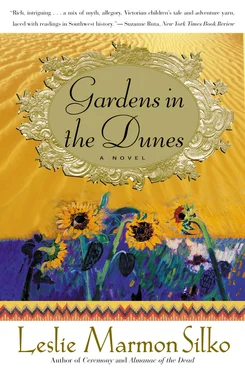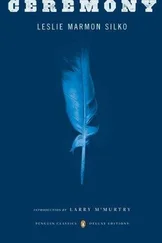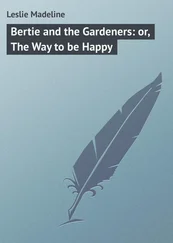Portal had a violent history from its beginning as a rubber station where an Indian village once stood. All of those Indians were gone; the rubber station at Portal was infamous for the use of torture and killing to increase the output of the indentured Indians who gathered the wild rubber. Rivalry between the rubber buyers erupted into periodic raids and reprisal raids in which dozens of Indians and white and Negro overseers were killed. The Frenchman said the old town and rubber station had been burned to the ground twice before by rivals; the third time Portal burned, the rubber buyer retreated farther upriver. That was when the Frenchman got the idea for a new town, a floating town that could be moved up or down the river in times of danger or floated away to serve the rubber stations in other remote river locations.
The Indians who met the boat did not live here; they lived deep in the forest and were not as friendly as the Indians who once lived at Portal. Edward noticed even the structures not destroyed by fire appeared uninhabited; tree ferns and palms pushed up through roof joists. Inside the abandoned warehouses he passed, he heard noises of jungle creatures that crawled and roosted in the ruins. No wonder the old village site was thought to be haunted; Edward felt uneasy himself, as if someone or something were watching him. The brief twilight of the tropics began to give way to darkness and Edward felt a growing panic that sent him walking faster and faster until he was running for the riverbank.
The motley barges and boats of the floating town were brightly lit with lanterns hung from their decks and rigging to announce the cantina and dance hall, the grocery and dry goods stores were all open for business. The relative coolness of the night brought out mine and plantation foremen from miles away.
The bartender nodded at two young women, a Negro and a mulatto sitting nearby, but Edward quickly shook his head. A crudely lettered sign propped up by rum bottles announced that women were sold by the dance or by the night. The cantina boat and the dance hall barge were connected by a wide plank of wood; Edward bought a gin and sat at a table with a view of the dimly lit dance hall. Three couples moved sluggishly to the music of a large hurdy-gurdy cranked by a monkey chained to the leg of a table. The monkey turned the crank as long as the dancers refilled its tin dish with bits of dry bread, purchased from the bartender. When the tin dish was empty, the monkey let go of the crank and leaned against the hurdy-gurdy box to rest. Edward watched as the little creature’s fingers delicately rubbed its neck under the leather collar. One after the other, the dancing couples disappeared across the plank to the hotel barge. The monkey watched the dancers disappear, then looked hopefully in the direction of the cantina and Edward. Before he left, Edward bought a handful of dry bread from the bartender for the monkey’s dish; the monkey looked at him anxiously and for an instant their eyes met before Edward turned away.
The next morning they traveled in two canoes as dawn lighted the sky. At a fork in the river Mr. Vicks and the Frenchman took one canoe with two Indians to gather disease-resistant Hevea seedlings from an old stand of wild rubber trees the Indians knew. Mr. Eliot and Edward went with the two Indian boys, neither more than twelve years old but already familiar with dozens of wild epiphytic orchids found only at the tops of the highest trees. On each side of the river the great trees towered out of sight in a canopy of foliage. Lianas hung from the branches, interwoven to form webs of coiling vines.
Edward watched closely. Sometimes a tree appeared covered with orchid blossoms that thrived on the lianas. Climbing ferns and vanilla clung to the trunks, and epiphytes graced the branches. Large arums sent down long aerial roots the Indians used for ropes. In the undergrowth different species of palms grew among the tree ferns, whose feathery crowns were twenty feet above the ground. Great broad leaf heliconias, leathery Melastoma , and succulent broadleaf begonias grew all around; Cecropia trees had a ghostly presence with their white stems and large white palmated leaves that stood straight up like candelabras. Sometimes the riverbank was carpeted with flower petals of yellow, pink, and white fallen from some invisible treetop. The air was filled with a delicious perfume, but in all the overshadowing greenery no source was visible.
The Indians knew exactly where to take the canoes in the branching estuaries; they knew where to find the Cattleya violacea by its fragrance. That afternoon Edward and Mr. Eliot returned with the canoes full of lovely rose-purple flowers with a round ruffled front lobe marked with a patch of vibrant yellow streaked with purple. Eliot assisted him with the labeling and packing of the day’s collection, and Edward could not help but notice how little Mr. Eliot knew about wild orchids; moreover, Mr. Eliot evidenced no interest in observing the natural habitats of the specimens. While Edward stood at the foot of the great trees to catch the specimens the Indians climbed for, Mr. Eliot napped in the canoe with a bottle of rum between his legs. Mr. Eliot did count the specimens twice and note the number in a small notebook he carried in his breast pocket.
Later Mr. Eliot invited Edward to join him at the cantina, but soon disappeared onto the hotel barge with a giggling mulatto girl. A Negress in a bright red dress joined Edward at the table, but when he offered to buy her a drink, she said she was off duty and only wanted some conversation. She was Jamaican by birth, she said, and if she didn’t die of some fever or go crazy from boredom she would be rich when she left the Pará. Already she had saved thousands for the store she would open in her village back on the island.
Edward told her a bit about the expedition, but she shook her head; she didn’t care at all for those orchids. They might be costly but the flowers were shaped like giant insects and they were hardly fragrant. She much preferred roses and gardenias. She daintily patted her forehead with a linen handkerchief and he noticed she wore a gardenia blossom on a white satin ribbon at her wrist. He admired the large blossom and she held her wrist to her face and closed her eyes with a big smile as she savored the fragrance. She said she was never without a gardenia because its perfume wards off yellow fever. Some nights the huge jungle moths hovered near her flower; they seemed to recognize her, she said.
The monkey watched them hopefully; the Negress laughed and went and untied the monkey and brought the little creature to sit on the table. People there believed the monkey was good luck, she said; some years ago only the monkey survived the massacre at the rubber station. The monkey was found in the same tree the attackers hung the monkey’s dead master, a rubber station foreman. The monkey was specially trained to perform many tasks, so the Frenchman bought the monkey from the police inspector who investigated the crimes. In no time the monkey learned to crank the music box. That happened before the Negress came to work for the Frenchman, but everyone knew the story.
When Edward stood up to go, the Negress carried the monkey back to the music box and retied the leash. Edward paid the bartender and put a piece of bread in the monkey’s dish on his way out. The little creature’s eyes brightened and it immediately began turning the crank with one hand while it ate the bread.
Sleep was impossible in the small steamy cabin, so Edward joined the others and hung his hammock and mosquito netting on the deck outside his cabin beside the crewmen and the others. The decks were lined with smoldering pots of a fragrant jungle wood to keep away the mosquitoes and bloodsucking insects. The hurdy-gurdy music, the sounds of laughter, and occasional screams and arguments filtered through the constant low hum of the jungle: the rustle of countless serpents, the squeaks and groans of dying prey, with the whir of giant winged beetles and the flutter of great moths at the lanterns. The riverboat deck, draped in netting with hammocks full of sleeping men, reminded Edward of a spider’s prey, bound and stored in the web.
Читать дальше












